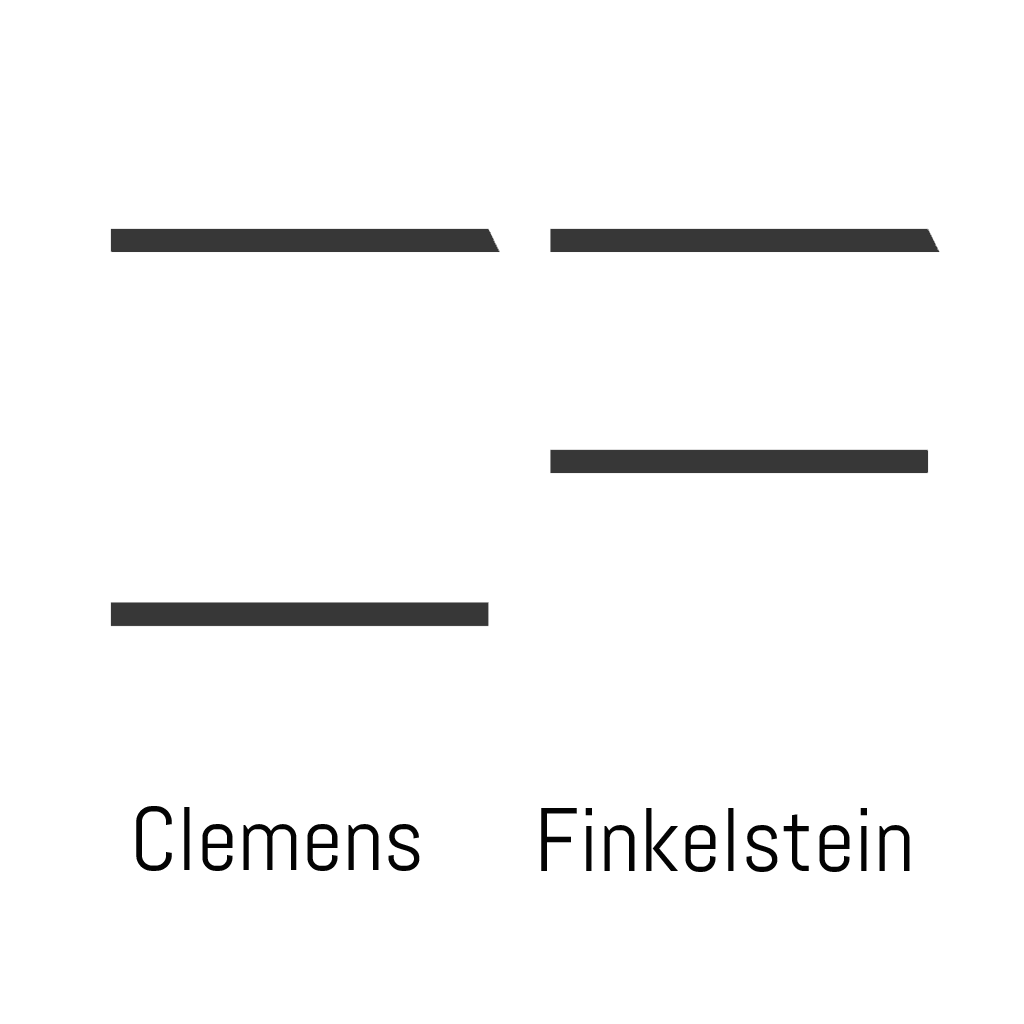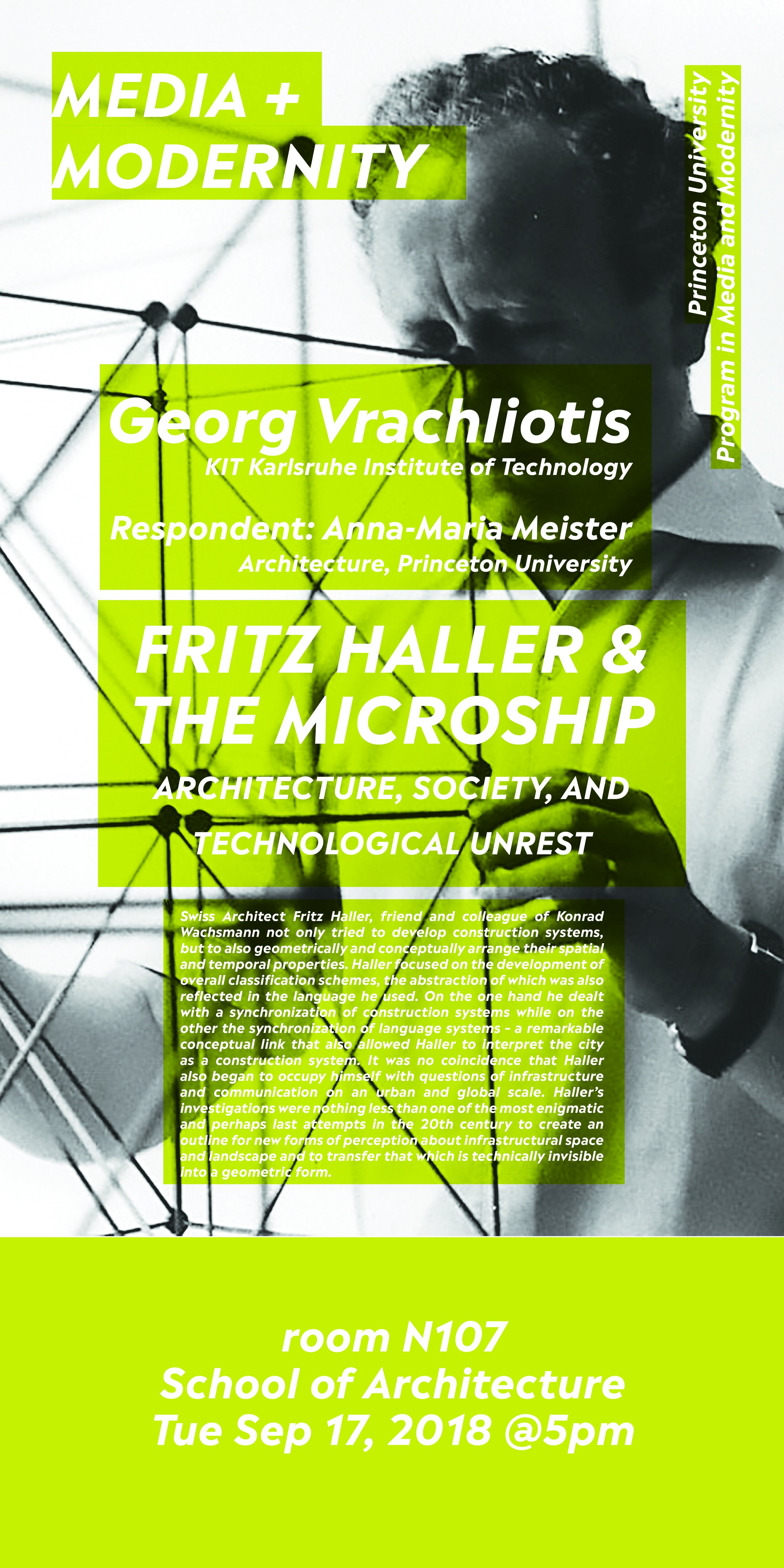[selection] updated November 4, 2024
University programs [managed].
-
M+M | Princeton University Program in Media and Modernity
Princeton University | 2018-2022
program manager: Clemens Finkelstein
directors: Beatriz Colomina, Devin Fore, Sylvia Lavin, Thomas Y. Levin, Hal Foster, Irene V. Small
participants: Georg Vrachliotis, Michael Osman, Peggy Phelan, Hal Foster, Lucia Allais, Joseph Vogl, Jeffrey West Kirkwood and Leif Weatherby, Elizabeth ‘Liz’ Diller, Erin Edwards, Friedrich Balke, Nikolaus Hirsch, Benjamen Walker, Sarah Herda, John R. Blakinger, Craig Buckley, Zvi Efrat, Vanessa R. Schwartz, Matt Wolf, Elena Vogman, Pelin Tan and Thomas Keenan, Fabiola López-Durán, Lydia Kallipoliti, Paul B. Preciado, Ruha Benjamin, Martino Stierli, Irene Cheng, Charles L. Davis II, Mabel O. Wilson, Albena Yaneva, Antoni Muntadas, Larry D. Busbea, Elisa Silva, Mari Lending, Erik Langdalen, Adrian Forty, Sylvia Lavin, Brigid Doherty, Mark Wigley, Nasser Abourahme, Irene V. Small, Gavin Steingo, Michael D. Gordin, Anna-Maria Meister, Victoria Bugge-Øye, Mary Anne Staniszewski, George Baird, Anne McCauley, Mitch McEwen, Barbara Penner, Adrian Forty, Olivia Horsfall Turner, Charles Rice, Harriet Harriss, Zeynep Çelik Alexander, Pamela M. Lee, Steven Chung, Teresa Fankhänel, Matthew C. Hunter, Kerstin Stakemeier, Anselm Franke, Nicole Starosielski, Ed Atkins

conferences [organized].
-
Planet as Method: Methodological Innovations for a Planetary Age
Planet as Method Group (Justus Liebig University Giessen / Philipps University of Marburg / TU Darmstadt)
October 31, 2024
The “Planet as Method” workshop, jointly organized by the Panel on Planetary Thinking at Justus Liebig University Giessen, the Institute for Sociology at Philipps University of Marburg, and the Institute for Sociology at TU Darmstadt, brought together an international group of scholars to explore innovative methodologies for researching our planetary condition. This experimental workshop aimed to shift the understanding of the planet from a mere backdrop to an active methodological lens, examining how the planetary can be integrated as a core dimension of inquiry within the humanities and social sciences.
Participants engaged with emerging approaches across disciplines and fields such as political science, sociology, architecture, history, cultural management, philosophy, and science and technology studies—ranging from experiential methods to sensor-based and normative tools—to illuminate the interconnected and dynamic relationships between human societies and planetary forces. In line with John Dewey’s concept of “method” as an experimental and adaptive practice, discussions focused on how the planetary might be approached as a methodological question in itself, inviting critical reappraisal of conventional frameworks and the development of transdisciplinary tools.
participants: Liza B. Bauer (Panel on Planetary Thinking, JLU Giessen), Tanja Bogusz (Christian Albrecht University Kiel), Stéphanie Domptail (Institute of Agricultural Policy & Market Research, JLU Giessen), Clemens Finkelstein (Panel on Planetary Thinking, JLU Giessen / Princeton University), Frederic Hanusch (Panel on Planetary Thinking, JLU Giessen), Claus Leggewie (Panel on Planetary Thinking, JLU Giessen), Lukáš Likavčan (Fellow, Panel on Planetary Thinking, JLU Giessen / Antikythera, Berggruen Institute), Marija Marić (University of Luxembourg), Sven Opitz (Philipps University of Marburg), Michał Pałasz (Jagiellonian University Kraków), Bronisław Szerszynski (Lancaster University, em.), Ute Tellmann (TU Darmstadt), Charlotte Wrigley (Fellow Panel on Planetary Thinking, JLU Giessen / University of Stavanger)

-
THE ARCHITECTURE PLAY: A Symposium on the Architecture and Cultural Techniques of Play
CAED College of Architecture and Environmental Design, Kent State University
November 8, 2019
organizing committee: Ivan Bernal (Kent State University), Clemens Finkelstein (Princeton University), Anthony Morey (A+D Museum, Los Angeles)
The Architecture Play is a collaborative multi-annual project by the A+D Architecture and Design Museum, Los Angeles and Kent State University College of Architecture and Environmental Design.
Processed as either verb or noun, ‘play,’ despite its numerous instantiations, never obscures the most crucial aspect inherent to all of its forms and shades: a raw potential whose explorative drive pushes the states of being and knowledge, as well as the pre-existent boundaries of the physical and metaphysical environment, in a constant effort to derive value from play. Intimately entwined, play has thus accompanied scientific progress since before the Enlightenment.The Architecture Play, a collaborative project conceived with these oscillating definitions in mind, similarly traces the ludic elements of the architectural discipline while projecting the potentialities of play beyond its preconceived limits. In four acts—a nod to its theatrical definition—the project constructs a complex ecology of actors and networks, of things and thoughts exchanged, transformed, and assembled to probe new avenues for pedagogy, practice, history, and theory of architecture; not simply transgressing boundaries but moving them altogether.
participants: Taraneh Meshkani (KSU), Katie Strand (KSU), Jon Yoder (KSU), Irene Chin (CCA Centre Canadien d’Architecture), Gary Fox (Getty Research Institute), Jia Gu (Materials & Applications), Lisa L. Hsieh (University of Minnesota), Kyle May (Kyle May, Architect PC), Antonio Petrov (University of Texas San Antonio), Leila Anna Wahba (A+D Museum, Los Angeles)

-
FIELD STUDIES
Princeton University
School of ArchitectureMarch 2-3, 2019
organizing committee: Zehra Ahmed, Gregory Cartelli, Clemens Finkelstein, Ingrid Lao, Camila Reyes Alé
The Field Studies workshop addressed the current identity crisis in Architectural History and Theory (AHT), where rapid field expansion has led to a “loose center” and confusion about its core object of study. Despite its increased visibility, AHT faces challenges from embracing diverse methodologies, leading to blurred disciplinary boundaries and a need for self-reflection.
Participants engaged in three interconnected workshops exploring key aspects of the field’s structure: Framework (institutional and cultural rules shaping the field), Position (the relative agency of disciplinary nodes), and Method (operative methods of scholarly production). Each workshop invited AHT scholars and adjacent field experts to consider how these components contribute to the discipline’s present and potential future cohesion. Concluding with a roundtable, participants synthesized findings to envision a path forward, probing what commonalities, structures, and innovations might stabilize AHT and enhance its transdisciplinary impact.
participants: Óskar Örn Arnórsson (Columbia University), Zulaikha Ayub (Princeton University), Carson Chan (Princeton University), Zoë Cope (McGill University), Jonas Delecave de Amorim (University of São Paulo), Ruo Jia (Princeton University), Eliyahu Keller (MIT), Maura Lucking (UC Los Angeles), Leslie Mcshane Lodwick (UC Santa Cruz), Thomas Oommen (UC Berkeley), Saptarshi Sanyal (UCL, The Bartlett School of Architecture), Rodanthi Vardouli (Harvard University), Eva Schreiner (Columbia University), Sofia Singler (University of Cambridge), Vajdon Sohaili (Princeton University), Sim Hinman Wan (University of Illinois, Chicago).

-
OPEN ISSUES — discussions on student publishing in design
Harvard University
Graduate School of DesignApril 6, 2017
The Open Issues symposium brought together student editors from design schools across the United States and Europe to explore the vital role of student-run publications in architecture and design. These publications have long served as experimental platforms for critique and open dialogue, acting as vessels for institutional memory while reflecting the sociocultural and political dynamics of design pedagogy.
The symposium examined the current state of student publishing, investigating the possibilities, limitations, and consequences of writing, editing, and curating content as creative forms of expression. Attendees engaged in conversations centered around key themes such as Premise, Medium, Content, Audience, and Discipline. A display of historical student-run journals from the Harvard Graduate School of Design, alongside a showcase of contemporary publications from around the globe, provided a rich backdrop for discussion, fostering an exchange of ideas about the future of student-led initiatives in architectural and design discourse.
participants: Association, Cornell Journal of Architecture, DATUM, de FACTO, DUE, Harvard Real Estate Review, Horizonte, HKU Architecture Papers, ISSUE:, LOBBY, lunch, MASKS, Mole, New Geographies, OBL/QUE, One:Twelve, Open Letters, Oz, Paper M, Paprika!, Perspecta: the Yale Architectural Journal, Pidgin Magazine, PLAT Journal, PNYX, POOL, Process, Revista REA, Retrospecta, Revista Diagonal, Room One Thousand, Test Plots, thresholds, trans magazin, Underscore, Urban, Very Vary Veri.














































